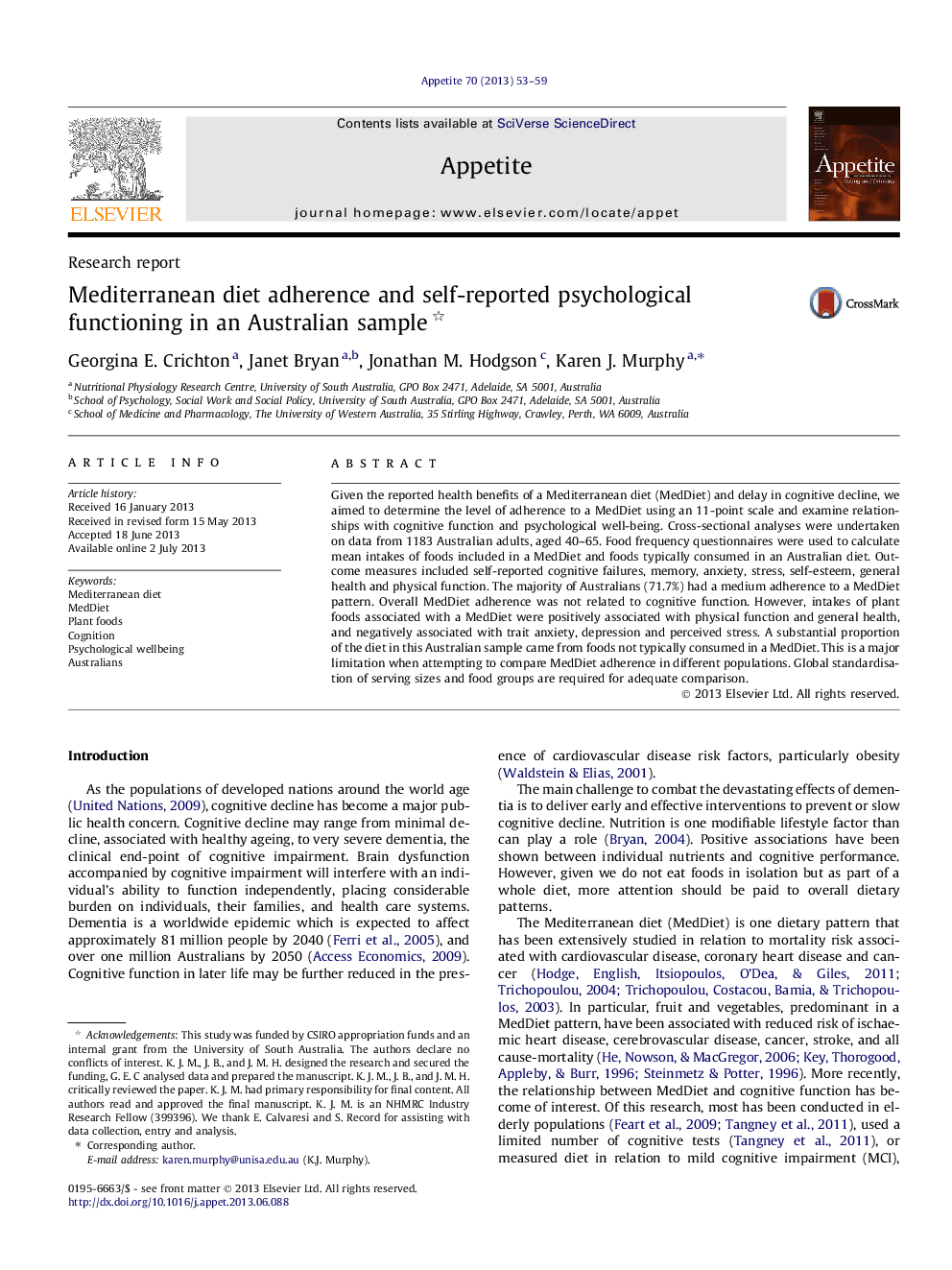| Article ID | Journal | Published Year | Pages | File Type |
|---|---|---|---|---|
| 939622 | Appetite | 2013 | 7 Pages |
•We examine relationships between MedDiet adherence and cognitive function.•72% of Australians had a medium adherence to a MedDiet pattern.•Overall MedDiet adherence was not related to cognitive function.•Plant food intake was associated with trait anxiety, depression, perceived stress.•Global standardisation of foods and serve sizes are necessary for comparison.
Given the reported health benefits of a Mediterranean diet (MedDiet) and delay in cognitive decline, we aimed to determine the level of adherence to a MedDiet using an 11-point scale and examine relationships with cognitive function and psychological well-being. Cross-sectional analyses were undertaken on data from 1183 Australian adults, aged 40–65. Food frequency questionnaires were used to calculate mean intakes of foods included in a MedDiet and foods typically consumed in an Australian diet. Outcome measures included self-reported cognitive failures, memory, anxiety, stress, self-esteem, general health and physical function. The majority of Australians (71.7%) had a medium adherence to a MedDiet pattern. Overall MedDiet adherence was not related to cognitive function. However, intakes of plant foods associated with a MedDiet were positively associated with physical function and general health, and negatively associated with trait anxiety, depression and perceived stress. A substantial proportion of the diet in this Australian sample came from foods not typically consumed in a MedDiet. This is a major limitation when attempting to compare MedDiet adherence in different populations. Global standardisation of serving sizes and food groups are required for adequate comparison.
